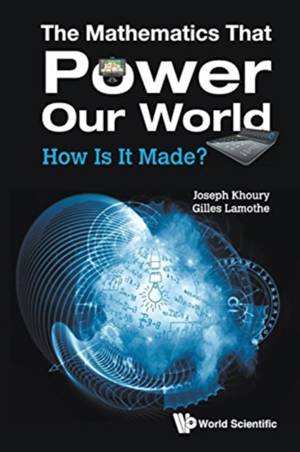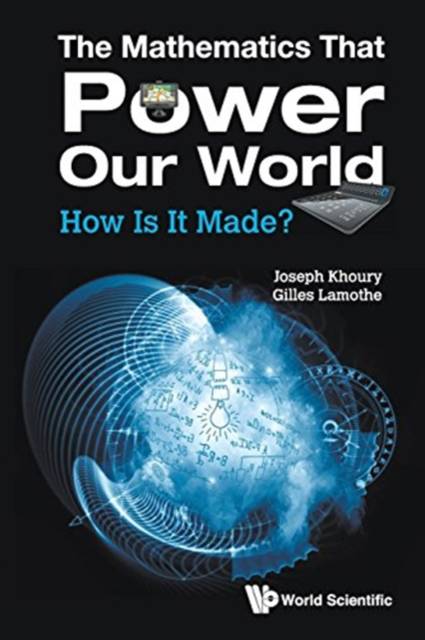
- Afhalen na 1 uur in een winkel met voorraad
- Gratis thuislevering in België vanaf € 30
- Ruim aanbod met 7 miljoen producten
- Afhalen na 1 uur in een winkel met voorraad
- Gratis thuislevering in België vanaf € 30
- Ruim aanbod met 7 miljoen producten
Omschrijving
The Mathematics That Power Our World: How Is It Made? is an attempt to unveil the hidden mathematics behind the functioning of many of the devices we use on a daily basis. For the past years, discussions on the best approach in teaching and learning mathematics have shown how much the world is divided on this issue. The one reality we seem to agree on globally is the fact that our new generation is lacking interest and passion for the subject. One has the impression that the vast majority of young students finishing high school or in their early post-secondary studies are more and more divided into two main groups when it comes to the perception of mathematics. The first group looks at mathematics as a pure academic subject with little connection to the real world. The second group considers mathematics as a set of tools that a computer can be programmed to use and thus, a basic knowledge of the subject is sufficient. This book serves as a middle ground between these two views. Many of the elegant and seemingly theoretical concepts of mathematics are linked to state-of-the-art technologies. The topics of the book are selected carefully to make that link more relevant. They include: digital calculators, basics of data compression and the Huffman coding, the JPEG standard for data compression, the GPS system studied both from the receiver and the satellite ends, image processing and face recognition.
This book is a great resource for mathematics educators in high schools, colleges and universities who want to engage their students in advanced readings that go beyond the classroom discussions. It is also a solid foundation for anyone thinking of pursuing a career in science or engineering. All efforts were made so that the exposition of each topic is as clear and self-contained as possible and thus, appealing to anyone trying to broaden his mathematical horizons.
Specificaties
Betrokkenen
- Auteur(s):
- Uitgeverij:
Inhoud
- Aantal bladzijden:
- 204
- Taal:
- Engels
Eigenschappen
- Productcode (EAN):
- 9789813144088
- Verschijningsdatum:
- 23/05/2016
- Uitvoering:
- Paperback
- Formaat:
- Trade paperback (VS)
- Afmetingen:
- 150 mm x 226 mm
- Gewicht:
- 272 g

Alleen bij Standaard Boekhandel
Beoordelingen
We publiceren alleen reviews die voldoen aan de voorwaarden voor reviews. Bekijk onze voorwaarden voor reviews.







